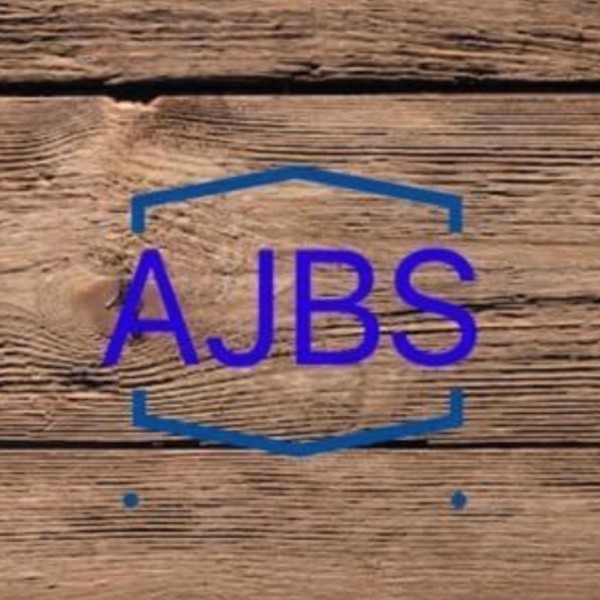Understanding Renovations in Salford
Salford, a vibrant city in Greater Manchester, is known for its rich history and cultural heritage. Over the years, the city has seen a significant transformation, with numerous renovation projects enhancing its urban landscape. Renovations in Salford are not just about modernising buildings; they're about preserving the city's unique character while embracing contemporary living standards. Whether you're a homeowner looking to update your property or a developer interested in larger projects, understanding the nuances of renovations in Salford is crucial.
The Historical Context of Salford's Architecture
Salford boasts a diverse architectural heritage, with buildings dating back to the Victorian era. The city's historical context plays a vital role in shaping renovation projects. Many properties are listed buildings, meaning they are protected due to their historical significance. Renovating such properties requires a delicate balance between preserving historical features and incorporating modern amenities. This often involves working closely with conservation officers to ensure that any changes are sympathetic to the original structure.
Planning Permission and Regulations
Before embarking on any renovation project in Salford, it's essential to understand the planning permission and regulations. The Salford City Council provides guidelines on what changes are permissible, especially for listed buildings and properties within conservation areas. Obtaining planning permission can be a lengthy process, but it's a necessary step to ensure that renovations comply with local regulations. It's advisable to consult with a planning expert or architect familiar with Salford's regulations to navigate this process smoothly.
Key Considerations for Planning Permission
- Understanding the classification of your property (e.g., listed building, conservation area).
- Submitting detailed plans and proposals to the council for approval.
- Engaging with local residents and stakeholders to address any concerns.
- Adhering to environmental and sustainability guidelines.
Popular Renovation Trends in Salford
Renovation trends in Salford reflect a blend of preserving the past while embracing the future. Open-plan living spaces, energy-efficient upgrades, and smart home technology are popular choices among homeowners. Additionally, there's a growing interest in sustainable materials and practices, such as using reclaimed wood or installing solar panels. These trends not only enhance the aesthetic appeal of properties but also contribute to a more sustainable urban environment.
Incorporating Modern Design Elements
Modern design elements can be seamlessly integrated into Salford's traditional architecture. For instance, large glass windows can be added to Victorian homes to increase natural light while maintaining the original facade. Similarly, contemporary kitchens and bathrooms can be installed without compromising the property's historical integrity. The key is to ensure that modern additions complement rather than overshadow the existing structure.
Budgeting for Renovations
Budgeting is a critical aspect of any renovation project. In Salford, costs can vary significantly depending on the property's size, age, and the extent of the renovations. It's essential to set a realistic budget that accounts for all potential expenses, including materials, labour, and unforeseen costs. Working with a reputable contractor can help ensure that the project stays within budget and is completed on time.
Tips for Effective Budgeting
- Obtain multiple quotes from contractors to compare prices.
- Allocate a contingency fund for unexpected expenses.
- Prioritise essential renovations over cosmetic changes.
- Consider long-term savings from energy-efficient upgrades.
Choosing the Right Contractor
Finding the right contractor is crucial for the success of your renovation project. In Salford, there are numerous contractors with varying levels of expertise and experience. It's important to choose a contractor who understands the local architecture and regulations. Checking references, reviewing past projects, and ensuring they have the necessary licenses and insurance are essential steps in selecting a reliable contractor.
Questions to Ask Potential Contractors
- Can you provide references from previous clients?
- What is your experience with similar renovation projects?
- How do you handle unexpected challenges during a project?
- What is your timeline for completing the renovation?
Environmental Considerations in Renovations
As environmental awareness grows, many homeowners in Salford are prioritising eco-friendly renovations. This includes using sustainable materials, improving energy efficiency, and reducing waste. Implementing green building practices not only benefits the environment but can also lead to cost savings in the long run. For example, installing energy-efficient windows and insulation can significantly reduce heating costs.
Eco-Friendly Renovation Practices
- Using recycled or reclaimed materials.
- Installing energy-efficient appliances and lighting.
- Incorporating rainwater harvesting systems.
- Utilising low-VOC paints and finishes.
Community Impact of Renovations
Renovations in Salford have a broader impact beyond individual properties. They contribute to the revitalisation of neighbourhoods, increase property values, and enhance the overall quality of life for residents. Engaging with the community during renovation projects can foster positive relationships and ensure that developments align with the needs and aspirations of local residents.
Engaging with the Community
Community engagement can take various forms, from public consultations to collaborative design workshops. By involving residents in the planning process, developers can gain valuable insights and address potential concerns early on. This collaborative approach can lead to more successful and well-received renovation projects.
Case Studies of Successful Renovations in Salford
Several renovation projects in Salford serve as exemplary models of successful transformations. For instance, the renovation of the Salford Quays area has turned it into a thriving cultural and commercial hub. Similarly, the restoration of historic buildings in the city centre has preserved Salford's architectural heritage while providing modern amenities for residents and businesses.
Lessons Learned from Past Projects
Examining past renovation projects can provide valuable lessons for future developments. Key takeaways include the importance of thorough planning, the benefits of community engagement, and the need for flexibility in addressing unforeseen challenges. These lessons can guide homeowners and developers in executing successful renovations that enhance Salford's urban landscape.
Future Prospects for Renovations in Salford
The future of renovations in Salford looks promising, with ongoing investments in infrastructure and urban development. As the city continues to grow, there will be increasing opportunities for innovative renovation projects that blend modern living with Salford's rich history. Embracing new technologies and sustainable practices will be key to ensuring that renovations contribute positively to the city's future.
Emerging Trends and Opportunities
Emerging trends in Salford's renovation scene include the use of smart home technology, the integration of green spaces, and the development of mixed-use properties. These trends reflect a shift towards more sustainable and connected urban living. By staying ahead of these trends, homeowners and developers can create spaces that meet the evolving needs of Salford's residents.
Frequently Asked Questions
- What are the main challenges of renovating a listed building in Salford? Renovating a listed building involves adhering to strict regulations to preserve its historical features, which can limit the scope of modernisation.
- How can I make my renovation project more environmentally friendly? Consider using sustainable materials, improving energy efficiency, and incorporating renewable energy sources like solar panels.
- Do I need planning permission for all types of renovations? Not all renovations require planning permission, but it's essential to check with the Salford City Council to ensure compliance with local regulations.
- How can I find a reliable contractor in Salford? Look for contractors with experience in local projects, check references, and ensure they have the necessary licenses and insurance.
- What are the benefits of engaging with the community during a renovation project? Engaging with the community can lead to more successful projects by addressing local concerns and gaining valuable insights from residents.
- What are some popular renovation trends in Salford? Popular trends include open-plan living spaces, energy-efficient upgrades, and the use of sustainable materials.
























